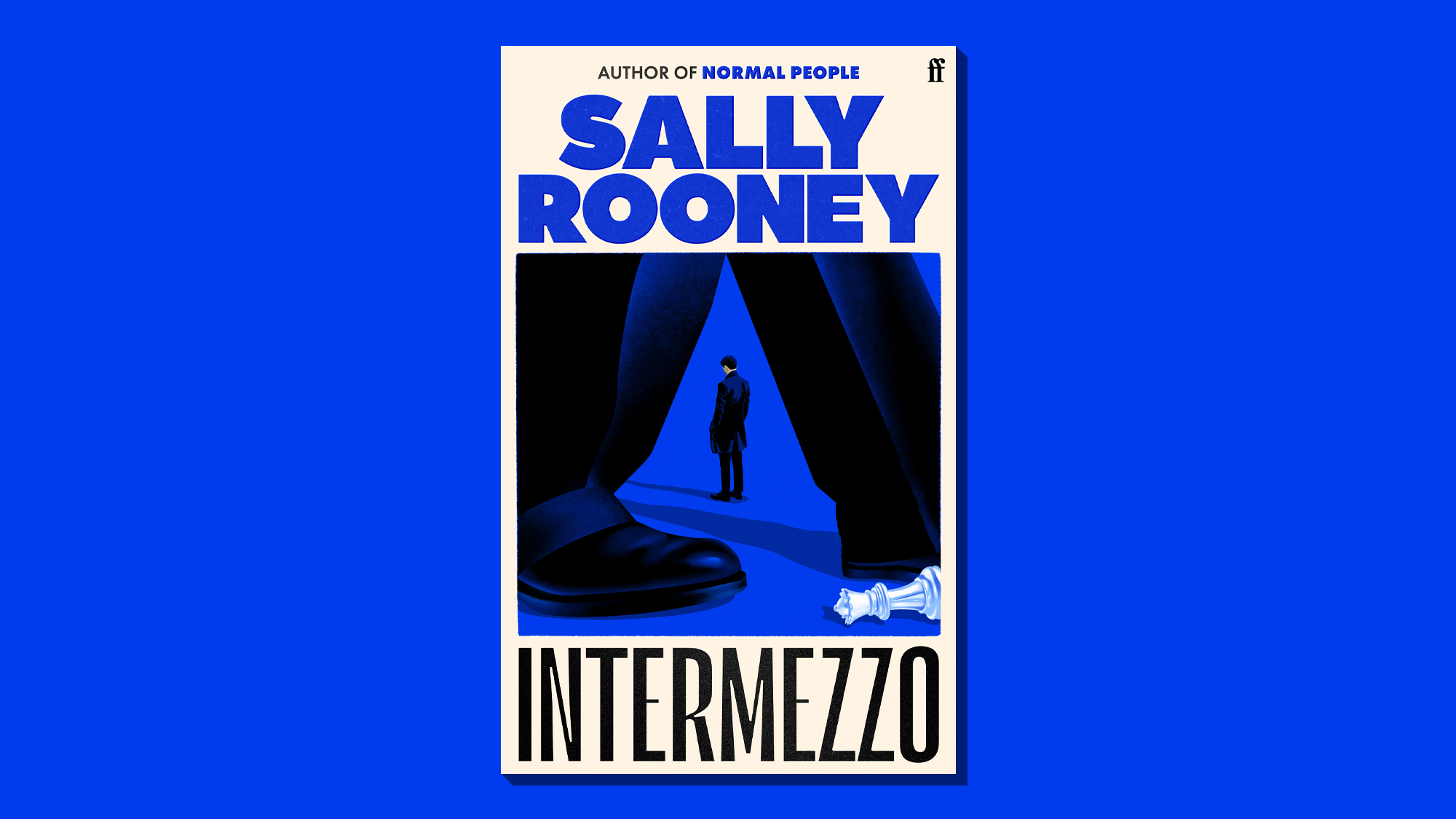Sally Rooney's Intermezzo: does it live up to Normal People?
This 'transcendent' novel sees the writer reach the 'full potential of her prowess'

A free daily email with the biggest news stories of the day – and the best features from TheWeek.com
You are now subscribed
Your newsletter sign-up was successful
In Sally Rooney's novels, unhappiness is a "mark of personal distinction", rather like "good A-level results", said The Times' James Marriott. And by that measure, the protagonists in her new novel, "Intermezzo", are as distinguished as they come.
Ivan, a 22-year-old chess genius with a degree in theoretical physics, and his brother Peter, a 32-year-old human rights lawyer, are grieving the death of their father, as well as their own unsatisfactory relationship. Ivan's career is "stagnant", while Peter uses prescription drugs to get through his "dreary" working day. Their romantic liaisons are no less troubled. Ivan "burns for" Margaret, an arts centre worker 10 years his senior. Peter's romantic focus, on the other hand, oscillates between Naomi, a student who sells nude pictures of herself online, and his hurting ex-girlfriend Sylvia.
An intermezzo is a kind of chess move that represents an "unexpected step that requires from the opponent an immediate response", said The Guardian's Alexandra Harris, and the characters here consistently move around each other in a way that can "throw each other off course".
The Week
Escape your echo chamber. Get the facts behind the news, plus analysis from multiple perspectives.

Sign up for The Week's Free Newsletters
From our morning news briefing to a weekly Good News Newsletter, get the best of The Week delivered directly to your inbox.
From our morning news briefing to a weekly Good News Newsletter, get the best of The Week delivered directly to your inbox.
These age-gap relationships are "irresistibly readable", said Marriott. "Age matters" here, said Harris. Or rather, as in all of Rooney's novels, "everyone is trying to work out how it matters". Thirty-something Peter and his peers are the "autumnal elders" of this novel, looking back to their youth, and perhaps towards their 40s, an "abstract concept on the margins".
Much is made of what is not said, said Jo Hamya in The Independent. Ivan and Peter meet only three times in the narrative, yet the reader is made aware of something the brothers remain unaware of: "that each brother loves the other, but language fails them." Perhaps Rooney's "project in earnest" throughout her work has been to describe the longing for love, to "make legible that noiseless, ordinary longing that can be found everywhere despite – or maybe because of – illness, and, crisis, and logic, and fear, and duty."
There is a "claustrophobia induced by being kept so close to people absorbed exclusively by their feelings," said Harris, and "my instinct while reading is to throw open a window" to allay it.
This is a more "philosophically ambitious, stylistically varied, disturbing at times and altogether stranger" novel than we are used to from Rooney, said Harris. "For all its flaws", the book is scattered with the "little gifts of psychological and emotional observation that are the most cherishable aspects of Rooney's talent", said Marriott.
A free daily email with the biggest news stories of the day – and the best features from TheWeek.com
She reaches the "full potential of her prowess" with this latest offering, said Hamya. Not everyone has waited as patiently as they might have – four novels in, Rooney is still just 33 years old – but for those who have, the reward is "transcendent".
-
 The 8 best TV shows of the 1960s
The 8 best TV shows of the 1960sThe standout shows of this decade take viewers from outer space to the Wild West
-
 Microdramas are booming
Microdramas are boomingUnder the radar Scroll to watch a whole movie
-
 The Olympic timekeepers keeping the Games on track
The Olympic timekeepers keeping the Games on trackUnder the Radar Swiss watchmaking giant Omega has been at the finish line of every Olympic Games for nearly 100 years
-
 The 8 best TV shows of the 1960s
The 8 best TV shows of the 1960sThe standout shows of this decade take viewers from outer space to the Wild West
-
 The year’s ‘it’ vegetable is a versatile, economical wonder
The year’s ‘it’ vegetable is a versatile, economical wonderthe week recommends How to think about thinking about cabbage
-
 The biggest box office flops of the 21st century
The biggest box office flops of the 21st centuryin depth Unnecessary remakes and turgid, expensive CGI-fests highlight this list of these most notorious box-office losers
-
 Mail incoming: 9 well-made products to jazz up your letters and cards
Mail incoming: 9 well-made products to jazz up your letters and cardsThe Week Recommends Get the write stuff
-
 The 8 best superhero movies of all time
The 8 best superhero movies of all timethe week recommends A genre that now dominates studio filmmaking once struggled to get anyone to take it seriously
-
 Book reviews: ‘Hated by All the Right People: Tucker Carlson and the Unraveling of the Conservative Mind’ and ‘Football’
Book reviews: ‘Hated by All the Right People: Tucker Carlson and the Unraveling of the Conservative Mind’ and ‘Football’Feature A right-wing pundit’s transformations and a closer look at one of America’s favorite sports
-
 One great cookbook: Joshua McFadden’s ‘Six Seasons of Pasta’
One great cookbook: Joshua McFadden’s ‘Six Seasons of Pasta’the week recommends The pasta you know and love. But ever so much better.
-
 How to navigate dating apps to find ‘the one’
How to navigate dating apps to find ‘the one’The Week Recommends Put an end to endless swiping and make real romantic connections